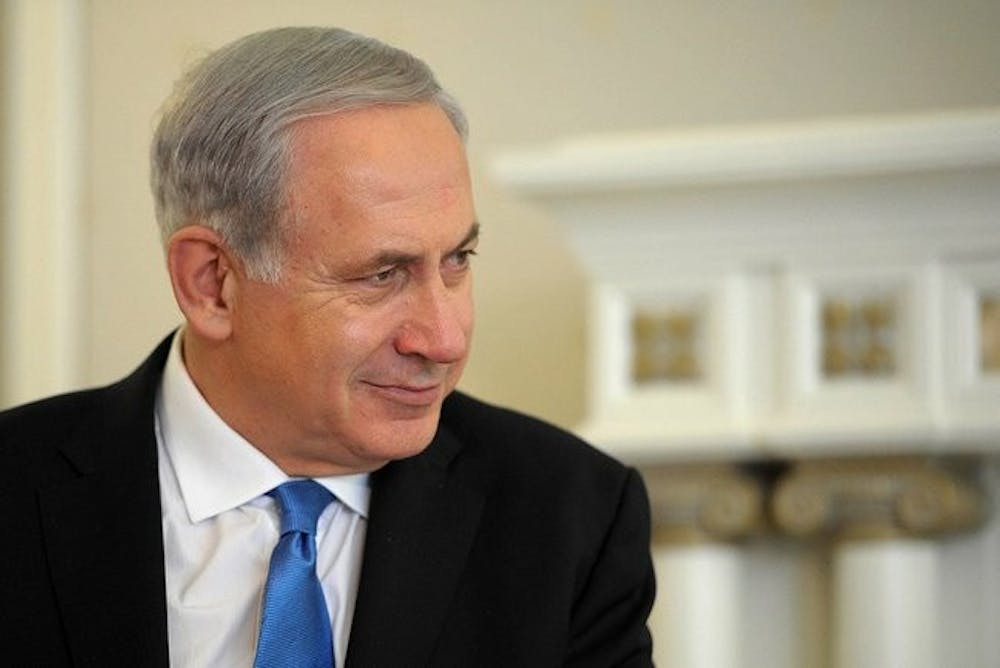Diplomacy and tact are not words which come to mind when describing Trump and his administration’s handling of international affairs. He’s painted the world in black and white, according to how he sees fit, and seems intent on retaining a brazen attitude even toward America’s allies.
Yet, absolute black and white are rarely useful if the goal is to achieve some kind of productive outcome, and recognizing that the situation of Israel and Palestine is gray is a necessity.
Trump’s nonchalant comments during his press conference with Israeli Prime Minister Benjamin Netanyahu on Feb. 15 do not reflect a policy. Trump, in his role as president, cannot afford to be “very happy with the [solution] that both parties like” and to be able to “live with either” a one- or two-state solution if America is to continue to have even a tenuous claim of supporting democracy and protecting human rights.
By refusing to take a definitive stance, Trump has brushed away decades of U.S. policy and painstaking efforts taken for the sake of a two-state solution. While U.S. meddling in foreign affairs has proven many times to be detrimental, the U.S.’s power and influence is undeniable. Its particular role as a mediator in the Israeli-Palestinian conflict is an entrenched one, and the U.S.’s abdication of a strong stance leaves its position as an intermediary uncertain and will have undetermined political ramifications in the Middle East.
Even more dangerous than his remarks, however, may well be Trump’s nominee for ambassador to Israel, David Friedman, if he is confirmed.
Friedman is a staunch opponent of a two-state solution. In the past he has dismissed it, writing, “There has never been a ‘two-state solution’ — only a ‘two state narrative.’” His refusal to recognize the validity of the Palestinian plight, the human rights violations of occupation itself and the untenability of a one-state solution would possibly act as a bolster to pushing Netanyahu and his government further to the right.
Friedman unequivocally supports existing settlements, continuing expansion and extending permanent Israeli control over the occupied territories, as his articles on israelnationalnews.com show. His implicit accusations that Palestinians as a homogenous collective are solely responsible for the violence fails to account for the fact most Palestinians are innocent civilians, for Israeli violence and for the complicated nature of the situation
One of his articles, entitled “Building Should Not be a Response to Arab Terror,” in which he argues for more settlements and that Israel has legitimate claims to the West Bank, ends with, “Peace will come if and when Palestinians learn to stop hating us and to embrace life rather than worship death. We should try to help them in that effort, but in all cases let’s continue to build!”
Friedman antagonizes Palestinians while simultaneously asserting that Israel somehow has an unchallenged right to the land of the West Bank.
He has levied accusations of anti-Semitism toward former U.S. President Barack Obama and former Secretary of State John Kerry, deflecting criticism of Israel and its policies. Perhaps even more outrageously, however, in another article, he referred to fellow Jewish people and the progressive Jewish organization J Street, which advocates for a two-state solution, in the following way:
“Finally, are J Street supporters really as bad as kapos? The answer, actually, is no. They are far worse than kapos — Jews who turned in their fellow Jews in the Nazi death camps. The kapos faced extraordinary cruelty and who knows what any of us would have done under those circumstances to save a loved one? But J Street? They are just smug advocates of Israel’s destruction delivered from the comfort of their secure American sofas — it’s hard to imagine anyone worse.”
That Friedman would even dare to make such a comparison bespeaks an appalling, intentional misconception of J Street and progressive Jewish people, a refusal to recognize nuance in the Israeli-Palestinian conflict and a failure to see how ending occupation would improve Israel. Amongst the people who advocate for a two-state solution are those who have a deep love of Israel and a deep desire to make it better. Moreover, using elements of the Holocaust for cheap political shots is a disgrace.
While Trump’s own flippant, noncommittal comments signal a strange and uncertain shift in U.S. policy, his nomination of David Friedman is a definitively detrimental action. Friedman’s attitude reflects a lack of empathy for the Palestinians and an obstinate, narrow-minded view of the conflict. His confirmation would be a step backward in the process toward peace.





